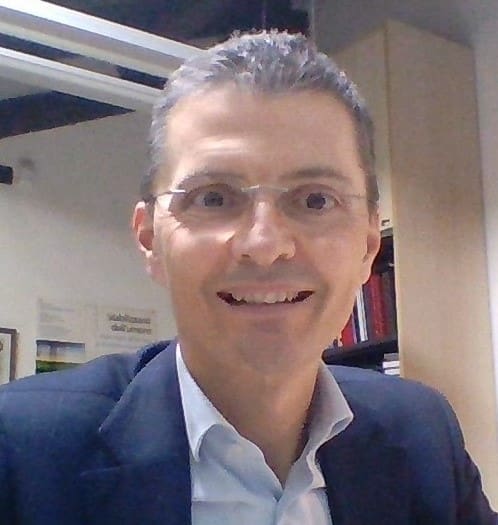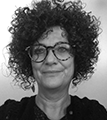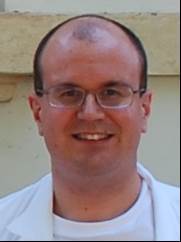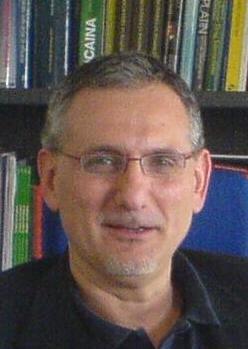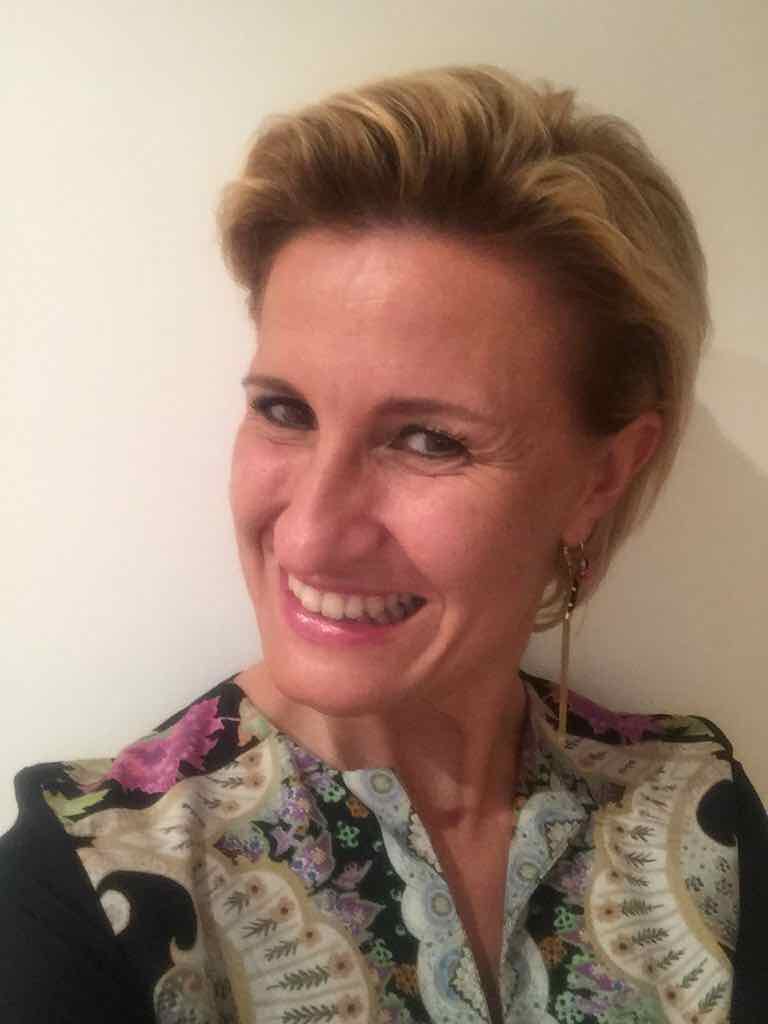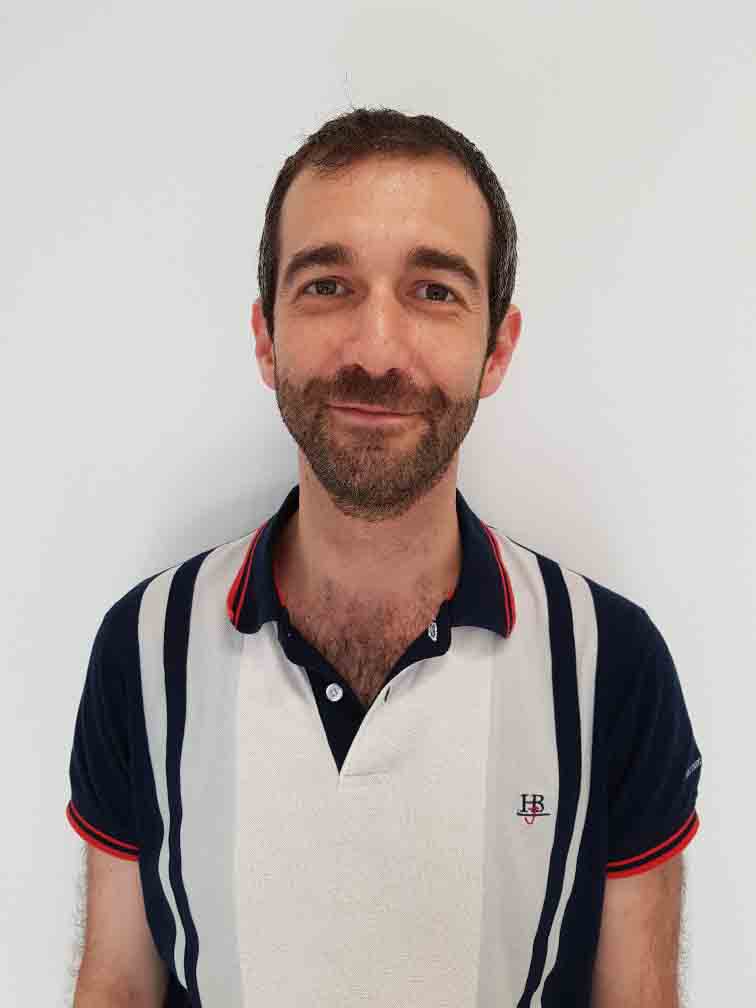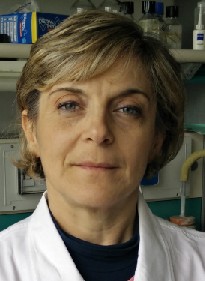Studying at the University of Verona
Here you can find information on the organisational aspects of the Programme, lecture timetables, learning activities and useful contact details for your time at the University, from enrolment to graduation.
Academic calendar
The academic calendar shows the deadlines and scheduled events that are relevant to students, teaching and technical-administrative staff of the University. Public holidays and University closures are also indicated. The academic year normally begins on 1 October each year and ends on 30 September of the following year.
Course calendar
The Academic Calendar sets out the degree programme lecture and exam timetables, as well as the relevant university closure dates..
| Period | From | To |
|---|---|---|
| INF TN - 2° anno 1° sem | Oct 1, 2019 | Dec 12, 2019 |
| INF TN - 1° anno 1° sem | Oct 9, 2019 | Dec 20, 2019 |
| INF TN - 3° anno 1° sem | Oct 14, 2019 | Dec 20, 2019 |
| INF TN - 3° anno 2° sem | Feb 3, 2020 | Mar 27, 2020 |
| INF TN - 1° anno 2° sem | Feb 3, 2020 | Apr 1, 2020 |
| INF TN - 2° anno 2° sem | May 4, 2020 | Jul 2, 2020 |
| Session | From | To |
|---|---|---|
| INF TN - sessione invernale (2° anno) | Dec 18, 2019 | Jan 20, 2020 |
| INF TN - sessione invernale (1°-3° anno) | Jan 9, 2020 | Jan 31, 2020 |
| INF TN - sessione estiva (3° anno 1^ parte | Apr 3, 2020 | Apr 20, 2020 |
| INF TN - sessione estiva (1° anno 1^parte) | Apr 8, 2020 | Apr 24, 2020 |
| INF TN - sessione estiva (2° anno 1^ parte | Apr 17, 2020 | Apr 29, 2020 |
| INF TN - sessione estiva (1° anno 2^ parte | Jul 9, 2020 | Jul 31, 2020 |
| INF TN - sessione estiva (1° anno 2^ parte | Jul 17, 2020 | Jul 31, 2020 |
| INF TN - sessione estiva (3° anno 2^ parte) | Jul 17, 2020 | Jul 31, 2020 |
| INF TN - sessione autunnale (1° anno) | Sep 4, 2020 | Sep 30, 2020 |
| INF TN - sessione autunnale (2°-3° anno) | Sep 7, 2020 | Sep 30, 2020 |
| Session | From | To |
|---|---|---|
| 1^ SESSIONE | Oct 1, 2020 | Nov 30, 2020 |
| 2^ SESSIONE | Mar 1, 2021 | Apr 30, 2021 |
| Period | From | To |
|---|---|---|
| FESTIVITA' OGNISSANTI | Nov 1, 2019 | Nov 1, 2019 |
| FESTIVITA' IMMACOLATA CONCEZIONE | Dec 8, 2019 | Dec 8, 2019 |
| Vacanze di Natale | Dec 24, 2019 | Jan 6, 2020 |
| VACANZE DI PASQUA | Apr 10, 2020 | Apr 15, 2020 |
| FESTA DELLA LIBERAZIONE | Apr 25, 2020 | Apr 25, 2020 |
| FESTIVITA' DEL SANTO PATRONO SAN ZENO | May 21, 2020 | May 21, 2020 |
| FESTA DELLA REPUBBLICA | Jun 2, 2020 | Jun 2, 2020 |
| Description | Period | From | To |
|---|---|---|---|
| INF TN - tirocinio 2° anno 1^ esp | INF TN - tirocinio 2° anno 1^ esp | Jan 21, 2020 | Feb 28, 2020 |
| INF TN - tirocinio 2° anno 2^ esp | INF TN - tirocinio 2° anno 2^ esp | Mar 5, 2020 | Apr 8, 2020 |
| INF TN - tirocinio 3° anno 1^ esp | INF TN - tirocinio 3° anno 1^ esp | Apr 21, 2020 | May 29, 2020 |
| INF TN - tirocinio 1° anno 1^ esp | INF TN - tirocinio 1° anno 1^ esp | Apr 27, 2020 | May 29, 2020 |
| INF TN - tirocinio 1° anno 2^ esp | INF TN - tirocinio 1° anno 2^ esp | Jun 8, 2020 | Jul 14, 2020 |
| INF TN - tirocinio 3° anno 2^ esp | INF TN - tirocinio 3° anno 2^ esp | Jun 8, 2020 | Jul 14, 2020 |
| INF TN - tirocinio 2° anno 3^ esp | INF TN - tirocinio 2° anno 3^ esp | Sep 2, 2020 | Oct 9, 2020 |
| INF TN - tirocinio 3° anno 3^ esp | INF TN - tirocinio 3° anno 3^ esp | Sep 2, 2020 | Oct 16, 2020 |
Exam calendar
Exam dates and rounds are managed by the relevant Medicine Teaching and Student Services Unit.
To view all the exam sessions available, please use the Exam dashboard on ESSE3.
If you forgot your login details or have problems logging in, please contact the relevant IT HelpDesk, or check the login details recovery web page.
Should you have any doubts or questions, please check the Enrollment FAQs
Academic staff
 mariangelabassetti@gmail.com
mariangelabassetti@gmail.com
 anita.bevilacqua@apss.tn.it
anita.bevilacqua@apss.tn.it
 borghesi.a@mail.apss.tn.it
borghesi.a@mail.apss.tn.it
 elena.bravi@apss.tn.it
elena.bravi@apss.tn.it
 cembrani@apss.tn.it
cembrani@apss.tn.it
 dellai@tn.apss.tn.it
dellai@tn.apss.tn.it
 alessandra.magotti@tin.it
alessandra.magotti@tin.it
 loredana.pancheri@univr.it
loredana.pancheri@univr.it
 marina.pecoraro@apss.tn.it
marina.pecoraro@apss.tn.it
 elda.righi@univr.it
elda.righi@univr.it
 cinzia.vivori@apss.tn.it
cinzia.vivori@apss.tn.it
Study Plan
The Study Plan includes all modules, teaching and learning activities that each student will need to undertake during their time at the University.
Please select your Study Plan based on your enrollment year.
1° Year
| Modules | Credits | TAF | SSD |
|---|
Professional Laboratories (1st year)
2° Year activated in the A.Y. 2020/2021
| Modules | Credits | TAF | SSD |
|---|
Professional Laboratories (2nd year)
3° Year activated in the A.Y. 2021/2022
| Modules | Credits | TAF | SSD |
|---|
Professional Laboratories (3rd year)
| Modules | Credits | TAF | SSD |
|---|
Professional Laboratories (1st year)
| Modules | Credits | TAF | SSD |
|---|
Professional Laboratories (2nd year)
| Modules | Credits | TAF | SSD |
|---|
Professional Laboratories (3rd year)
Legend | Type of training activity (TTA)
TAF (Type of Educational Activity) All courses and activities are classified into different types of educational activities, indicated by a letter.
Application of diagnostic and therapeutic processes (2020/2021)
The teaching is organized as follows:
Learning outcomes
The course consists of four teaching modules, Clinical Pharmacology, Nursing, Dietary Sciences, Imaging Diagnostics and Radioprotection, which integrate themselves to allow a thorough theoretical-practical knowledge of the main diagnostic and therapeutic processes that characterize nursing care. This teaching is based on the principles of safety and efficacy of care to achieve health outcomes or a compensated state of care and to evaluate the progress of care in collaboration with the multidisciplinary team. The approach considers the application methods of the prescribed diagnostic and therapeutic processes as well as the effects surveillance strategies. DIAGNOSTIC FORM FOR IMAGES AND RADIOPROTECTION: Conferring notions on the principles of image formation in diagnostic imaging, on radiation protection, on how to prepare and carry out investigations. Learning the notions concerning radiation protection. Teaching the required preparations and techniques of administration of contrast media. Informing about adverse reactions to contrast media. CLINICAL PHARMACOLOGY: The aim of the module is to provide the student with notions of clinical pharmacology necessary for the profession of nurse, useful in the control and management of drug therapies, with particular reference to the recognition and prevention of the most important adverse events for each category of drugs studied. It is equally important to have the necessary knowledge to be able to carry out an effective pharmacological education towards patients. DIAGNOSTIC AND THERAPEUTIC PROCESSES APPLIED NURSING: The module focuses on the management and application of diagnostic and therapeutic processes that are required to provide nursing care to patients in hospital, territorial and residential care settings. This module is based on the principles of safety and efficacy of care to achieve health outcomes or a compensated state of care and to evaluate the progress of care in collaboration with the interdisciplinary team. The approach considers the application methods of the prescribed diagnostic and therapeutic processes as well as the effects surveillance strategies. DIETARY SCIENCES: - Give students the necessary tools to learn about nutrition. - Integrate nutritional knowledge into daily work in the wards. - Provide food nutrients and complications related to incorrect nutrition
Program
------------------------
MM: SCIENZE DIETETICHE
------------------------
Nutritional and caloric needs for healthy people. Physiology of digestion and absorption of nutrients and water. Oral nutritional support (ONS) and nutritional miscelae. Nutritional approach to obesity, malnutrition and cachexia. Diet in people affected by cardiovascular disease and by liver chronic illness; diets examples; some introduction about hospital catering
------------------------
MM: FARMACOLOGIA CLINICA
------------------------
At the end of the course the student should know the most important characteristics, the mechanism of action (in relation to the adverse events), the most frequent and serious adverse reactions, the contraindications, the precautions, the problems related to the management of the therapy (eg interactions, drugs administration), the main indications and the most used single drugs for each of the following drug classes: Cardiovascular drugs: digitalis, antiarrhythmics, Antihypertensives, antianginals, diuretics, cholesterol lowering agents, Anticoagulants, Antiplatelet agents (the following categories also include Calcium channel blockers, beta blockers, ACE inhibitors, sartans and statins) Respiratory drugs: Antiasthmatics, Cough Sedatives, Mucolytics Gastrointestinal drugs: Antiulcer (gastroprotectors), Antiemetics, laxatives Drugs of the nervous system: Opioid analgesics (pain therapy), Anxiolytic - Sedative-hypnotics (benzodiazepines), antidepressants. As part of the course is scheduled the discussion of one or more clinical cases.
------------------------
MM: INFERMIERISTICA APPLICATA AI PERCORSI DIAGNOSTICI E TERAPEUTICI
------------------------
------------------------
MM: DIAGNOSTICA PER IMMAGINI E RADIOPROTEZIONE
------------------------
Bibliography
| Author | Title | Publishing house | Year | ISBN | Notes |
|---|---|---|---|---|---|
| Singoli moduli | Vedi i libri indicati nei singoli moduli | 2019 | |||
| Marina Vanzetta,Roberto Leone,Maurizio Volterrani | Farmaci e infermiere. Un prontuario per la somministrazione (Edizione 4) | Mc Graw Hil | 2014 | ||
| Di Giulio A.M. Gorio A. Carelli S. Cella S.G. Scaglione F. | Farmacologia generale e speciale. Per le lauree sanitarie (Edizione 2) | Piccin | 2018 | 978-88-299-2942-9 | |
| Taglialatela Conforti Cuzzolin Leone Mattioli Moretti Pignataro Vanzetta | Farmacologia per le lauree triennali e magistrali II Edizione (Edizione 2) | Sorbona | 2019 | ||
| Rossi F., Cuomo V., Riccardi C. | Farmacologia per le professioni sanitarie (Edizione 1) | Minerva Medica | 2014 | 978-88-7711-787-8 |
Examination Methods
written text with multiple choice questions
Career prospects
Module/Programme news
News for students
There you will find information, resources and services useful during your time at the University (Student’s exam record, your study plan on ESSE3, Distance Learning courses, university email account, office forms, administrative procedures, etc.). You can log into MyUnivr with your GIA login details: only in this way will you be able to receive notification of all the notices from your teachers and your secretariat via email and soon also via the Univr app.
Gestione carriere
Orario lezioni
Documents
| Title | Info File |
|---|---|
|
|
pdf, it, 437 KB, 07/03/24 |
|
|
pdf, it, 457 KB, 16/04/24 |
|
|
pdf, it, 450 KB, 05/04/24 |
|
|
pdf, it, 628 KB, 08/01/24 |
|
|
pdf, it, 1453 KB, 07/02/24 |
Guida ai programmi degli insegnamenti
Guida ai programmi degli insegnamenti
Documents
| Title | Info File |
|---|---|
|
|
pdf, it, 1594 KB, 12/12/22 |
|
|
pdf, it, 1310 KB, 02/09/21 |
Graduation
Documents
| Title | Info File |
|---|---|
|
|
pdf, it, 242 KB, 19/01/24 |
|
|
pdf, it, 80 KB, 06/04/24 |
|
|
pdf, it, 43 KB, 06/04/24 |
|
|
pdf, it, 44 KB, 09/04/24 |
|
|
pdf, it, 148 KB, 06/04/24 |
|
|
pdf, it, 108 KB, 06/04/24 |
|
|
pdf, it, 115 KB, 06/04/24 |
|
|
pdf, it, 1487 KB, 18/02/22 |
|
|
pdf, it, 437 KB, 22/03/24 |
|
|
pdf, it, 957 KB, 22/03/24 |
|
|
pdf, it, 424 KB, 19/01/24 |
Linee guida per riconoscimento cfu
Lo studente che intende chiedere il riconoscimento di moduli o insegnamenti pregressi dovrà presentare domanda, entro il 30 novembre dell’anno accademico in corso, seguendo le indicazioni indicate al link seguente: https://www.univr.it/it/i-nostri-servizi/segreterie-studenti/gestione-carriere-studenti-medicina-e-chirurgia/riconoscimento-crediti-acquisiti-da-una-carriera-pregressa-medicina
Documents
| Title | Info File |
|---|---|
|
|
pdf, it, 295 KB, 09/11/21 |
Student login and resources
Attività didattiche regime part-time
Modalità di richiesta
La domanda di iscrizione part-time può essere presentata all'inizio di ogni anno accademico e comunque entro il 30 novembre di ogni anno. Entro lo stesso termine, se necessario, lo studente potrà richiedere di tornare al regime full-time. Al link seguente la pagina del servizio https://www.univr.it/it/i-nostri-servizi/segreterie-studenti/flessibilita-nella-frequenza-dei-corsi/possibilita-di-iscrizione-part-time-e-ripristino-full-time
Una volta inviata la domanda, lo studente concorda in via preventiva con il Coordinatore della didattica professionale (CDP), il piano di studi che intende perseguire nel periodo di part-time compilando il modulo in allegato
Documents
| Title | Info File |
|---|---|
|
|
octet-stream, it, 1309 KB, 21/10/22 |
Appelli d'esame
Appelli d'esame
Documents
| Title | Info File |
|---|---|
|
|
pdf, it, 429 KB, 17/04/24 |
|
|
pdf, it, 2762 KB, 15/12/22 |
Tirocinio Professionalizzante
Tirocinio Professionalizzante
Attività Seminariali e a scelta dello studente
Attività Seminariali e a scelta dello studente

 +039 0458027288
+039 0458027288
